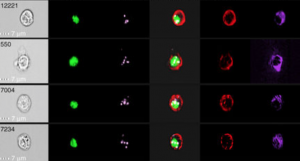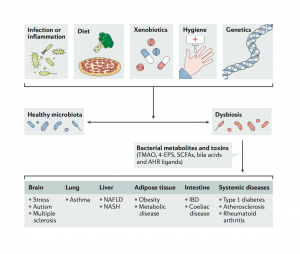The Role of the Immune System in Metabolic Health and Disease
In addition to the immune system’s traditional roles of conferring anti-infectious and anti-neoplastic protection, it has been recently implicated in the regulation of systemic metabolic homeostasis. This cross-talk between the immune and the metabolic systems is pivotal in promoting “metabolic health” throughout the life of an organism and plays fundamental roles in its adaptation to ever-changing environmental makeups and nutritional availability. Perturbations in this intricate immune-metabolic cross-talk contribute to the tendency to develop altered metabolic states that may culminate in metabolic disorders such as malnutrition, obesity, type 2 diabetes mellitus (T2DM), and other features of the metabolic syndrome. Regulators of immune-metabolic interactions include host genetics, nutritional status, and the intestinal microbiome. In this Perspective, we highlight current understanding of immune-metabolism interactions, illustrate differences among individuals and between populations in this respect, and point toward future avenues of research possibly enabling immune harnessing as means of personalized treatment for common metabolic disorders.
Visit full article page:
http://www.cell.com/cell-metabolism/fulltext/S1550-4131(17)30096-7

